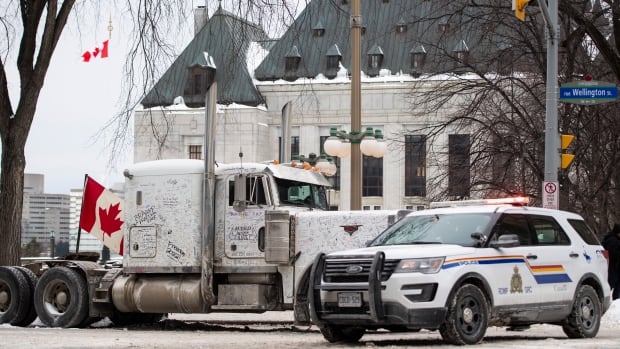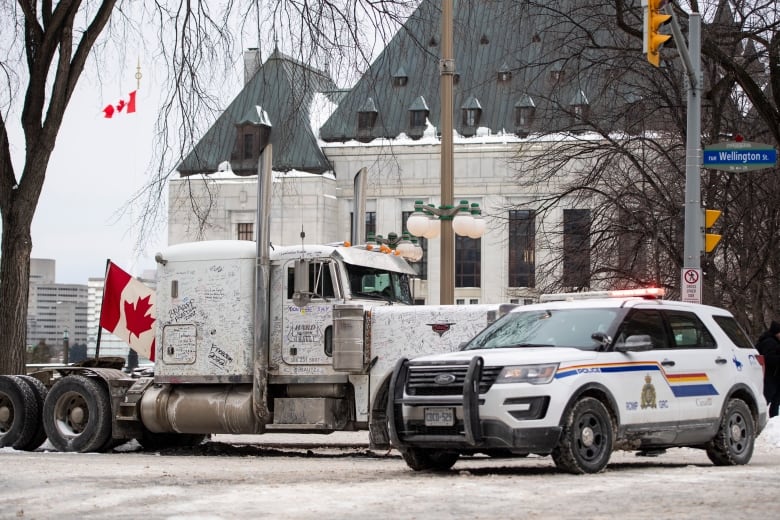
The RCMP quickly became concerned that the Ottawa police did not have a plan to end the convoy protest that occupied the capital last winter, the top Mountie told the Emergencies Act inquiry.
RCMP Commissioner Brenda Lucki and Deputy Commissioner Michael Duheme, who is responsible for federal policing, testified Tuesday before the Public Order Emergency Commission.
The pair also sat for an interview with commission lawyers in September. A summary of that conversation was entered into evidence Tuesday.
During that interview, Lucki said the RCMP became concerned during the week of Jan. 31 — the week after the first weekend of protest — that the Ottawa Police Service (OPS) did not have an overall operational plan to end the occupation of Ottawa.
Both Mounties said they needed to see a plan before committing more resources to Ottawa as similar anti-COVID-19 restrictions protests began to sprout in Western Canada and at the Windsor, Ont., border crossing.
Duheme told the commission lawyers that he joined a call with Ottawa officers on Jan. 31, where OPS indicated it wanted to launch an aggressive enforcement operation from Feb. 3-6.
“Duheme said he felt that OPS lacked the resources to conduct these operations and had neither the resources nor the plans to sustain them over the long term,” said the interview summary.
WATCH | Lucki says local police requests ‘caught us off guard’ during protests
“Lucki became concerned that OPS lacked a plan to use the RCMP and OPP resources that were then assisting OPS.”
Lucki and Duheme said they never saw an overall operational plan prepared by the Ottawa police.
“It was not clear to them whether OPS lacked such a plan or was unwilling to share it with the RCMP,” said their interview summary.
Lucki also said it would have been inappropriate for her to interfere in Ottawa police Chief Peter Sloly’s planning and intelligence assessment processes.
Trudeau cited policing issues when invoking act
The Public Order Emergency Commission is assessing whether the federal government met the legal threshold to invoke the Emergencies Act to clear Ottawa of protesters last winter.
Under the Emergencies Act, a public order emergency “arises from threats to the security of Canada that are so serious as to be a national emergency.”
The act refers to the Canadian Security Intelligence Service’s (CSIS) definition of threats, including serious violence against persons or property, espionage, foreign interference or an intent to overthrow, by violence, the government.

Prime Minister Justin Trudeau cited issues with police enforcement when he announced his decision.
“It is now clear that there are serious challenges to law enforcement’s ability to effectively enforce the law,” he told a news conference.
Under the Emergencies Act, a national emergency is “an urgent, temporary and critical situation that seriously endangers the health and safety of Canadians that cannot be effectively dealt with by the provinces or territories.”
“It must be a situation that cannot be effectively dealt with by any other law of Canada.”
A documented presented to the commission on Monday showed CSIS didn’t believe the self-styled Freedom Convoy constituted a threat to national security according to the definition in its enabling law.